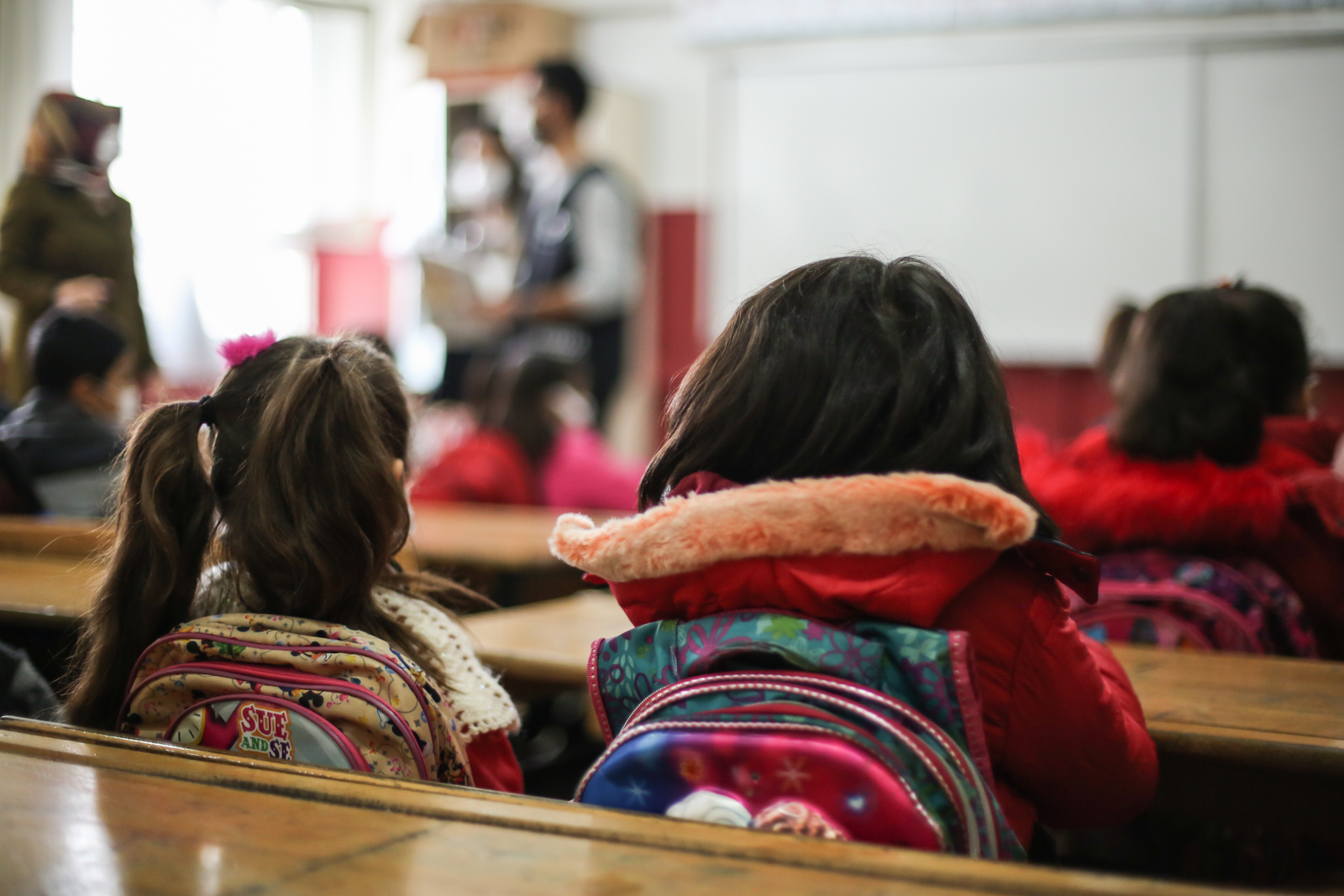
Menstruation clubs break taboos and keep Ethiopian girls in school
Girls' education, Right to education, Teachers and learning
The dropout rate has decreased thanks to the clubs, where boys also learn about periods and girls are given sanitary pads.
There’s one room at the Sheno primary school in rural Ethiopia that’s different from all the others, starting with the sign over the door reading: “Menstruation is a gift from God.”
Inside this converted classroom, boys and girls gather in what some pupils call the “girls’ club” to break one of the country’s most enduring taboos – talking about periods.
In Ethiopia, adolescent girls are generally left to muddle through puberty on their own without guidance or the means to buy sanitary pads.
Only 54% of Ethiopian girls finish primary school, according to the United Nations children’s fund UNICEF, and many abandon it because of cramps or embarrassing mishaps during their periods.
With child marriage prevalent in rural areas, local beliefs link menstruation to sexual activity, and so an accidental blood stain could see girls relentlessly teased by their classmates.
When 14-year-old Yordanos Tesfaye first got her period, she was “shocked and frightened”.
“I went home and told my father but he couldn’t afford to buy me a pad. Then I told my friend and she suggested I use a rag. However, I didn’t know how to use it and dropped it on the street and I was very embarrassed,” she told AFP.
Like many teenage girls, she was tempted to drop out of school but support from the girls’ club convinced her to stay.
The clubs – officially called “menstrual hygiene management” clubs and open to pupils aged 11 and older – began as a collaboration between local health officials and UNICEF, based on the idea that adolescent girls won’t stay in school if they can’t effectively manage their transition to womanhood.
“That (time) of the girls’ lives is absolutely critical to manage well in order to improve the sort of academic performance and reduce the dropouts in school,” said Samuel Godfrey, UNICEF’s sanitation chief in Ethiopia.
We teach students in this club that menstruation is a gift from God. We teach them that it is not a disease but rather it is natural and biological. Biology teacher Tafesech Balemi
The programme has been implemented in 65 schools and UNICEF is planning to expand it further.
Children attend primary school in Ethiopia from the age of seven to 14 but many stay longer if they were late to enrol or have repeated a class.
At Sheno school, which has more than 760 pupils and lies some 80 kilometres (50 miles) from the capital Addis Ababa, sanitary pads are given out for free and boys and girls work together to demystify the female menstrual cycle.
Since the girls’ club opened three years ago, Sheno’s rate of dropouts due to period woes has been reduced to zero. The year before it opened, 20 girls left, according to the school.
Clad in a white coat, biology teacher Tafesech Balemi guides girls through the changes their bodies are experiencing, while also educating the boys.
She hands out reusable sanitary pads to girls who can’t afford to buy them and also offers a shower and a mattress where they can lie down if they don’t feel well.
“We teach students in this club that menstruation is a gift from God. We teach them that it is not a disease but rather it is natural and biological,” she explains.
Tafesech also tracks girls who don’t come to school and will meet with their families if she believes their absenteeism has something to do with menstruation.
Ethiopia is among several countries in Africa that have implemented ways to accommodate women during their periods.
In 2015, Zambia enacted a law allowing women to be absent from work without notice to help them deal with menstrual pain. Earlier this year, Kenya mandated that all schools provide sanitary pads to girls, free of charge.

More news

Skills for the future give young people the best chance of success
